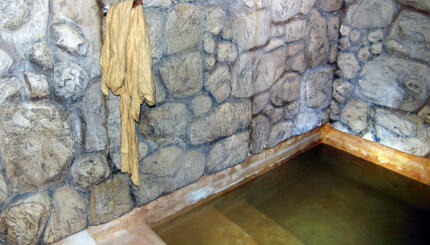Remembering fallen soldiers is a weird thing. Personally, I find it difficult to really feel pain and sorrow for people who I didn’t know. While most of the Israeli soldiers who have died over the past 61 years have been my age or even younger, it is still difficult to imagine what their lives were like, how their families reacted, etc. For me, it’s one of those “you had to be there” things.
Then there is Michael Levin. Last year, Meredith wrote a great piece about the Philadelphia native, who grew up in Camp Ramah and USY, then died in the Lebanon war, so I won’t repeat what she said. But on a personal level, Michael’s life and death is one of the few stories that I really have felt a bond with.
After his death, a movie called A Hero in Heaven was produced to tell the story of Michael’s life. I remember, last summer, showing it to my 70 campers, all of whom were 12 and 13. I wasn’t sure how they would react to it. It was really hot day, and I just wasn’t sure if they would take the movie seriously. For 45 minutes, they sat silently taking in every word, with the occasional kid being shocked to see a picture of Michael with someone they knew (like the girl seeing a picture of Michael with is arms around her sister).
For some reason, Michael’s story really hits home with people more than others. I think, more than anything, Americans see themselves in Michael and, in some way, wish we could have been more like him.
Today, Harriet Levin, Michael’s mother, is in Israel for Yom Hazikaron. In an interview with YNet, she puts it into perspective for us:
“Mikey did what I always wanted to do and never did. He made aliyah to Israel and enlisted in the IDF. I always dreamed of doing more for my country, of coming and volunteering. After all, it’s the easiest thing live in a big, beautiful house in the United States and to write a check for a pro-Israeli organization every once in a while. I wanted to give a lot more, but I didn’t think I’d give so much, that I’d give my son.”
Here is a short clip from A Hero In Heaven:
aliyah
Pronounced: a-LEE-yuh for synagogue use, ah-lee-YAH for immigration to Israel, Origin: Hebrew, literally, "to go up." This can mean the honor of saying a blessing before and after the Torah reading during a worship service, or immigrating to Israel.


